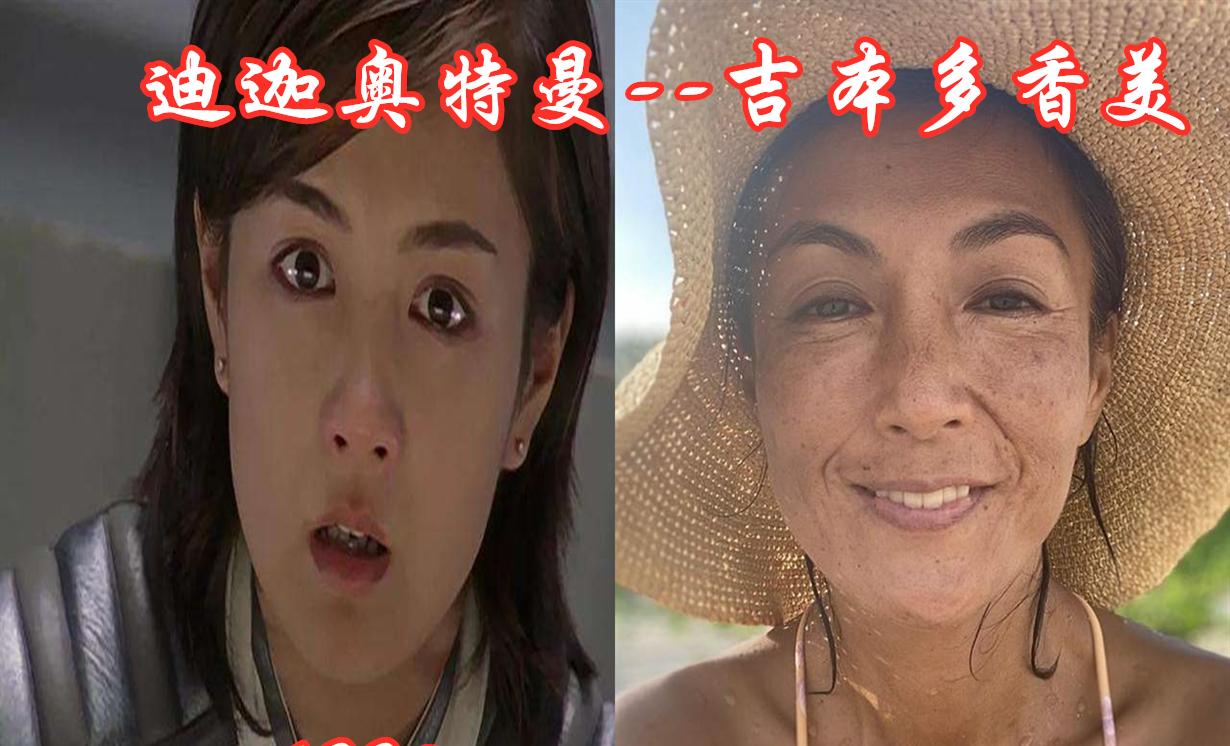When I watched Ultraman as a child, in addition to the exciting scene of Ultraman fighting the little monster, I also remembered the female players in it. Now that decades have passed, many female players have experienced the baptism of time, but this time the years do not seem to be as ruthless as before, but for some actresses, they have a lot of mercy. Many actresses don't look much different from that year, but it makes people feel that time has stopped, but there are exceptions, that is, Diga Ultraman Lina's actor Yoshimoto Tarumi.

But this change of hers is not a pity, because some of her recent remarks and positions have made many people no longer like her. Not only domestic audiences but also Japanese audiences expressed great disappointment with her remarks, and I really don't know if she did it intentionally or if it was vague for a while.
Speaking of the female characters in Ultraman, at first glance I thought that it would not be a female Ultraman, in fact, the proportion of female Ultraman in the Ultraman series is very small, except for the mother of Ultraman, I have almost no other impression. The reason is that although Ultraman's equipment is only a leather coat, under the conditions at that time, wearing this leather jacket to fight is still very hard. And the salary is not high, compared with this, it is better to be a female team member to be more reliable.
The reason why it is reliable does not mean that the female players do not want to be Ultraman's dreams, such as Gaia Ultraman's actor Maria, who does not look like a Japanese actor, who once said that he wanted to become a female Ultraman when he was about to finale. However, Ultraman, who lets girls as the protagonists, really has one, that is, "Undefeated Brave", which is a theatrical version, and it also exists as a villain.
In addition, there is really no female Ultraman as the protagonist, and even the entire Ultraman series does not have many girls Ultraman, let alone a TV series version of Ultraman to make girls the protagonist. Although this has something to do with Japanese culture, in terms of Japanese manga, Ultraman's type of close-up works are still bloody. Although there are many Otome fans or Otome-like fans in Japanese manga, the vast majority of them are male protagonists.
And in addition to Being a Battle Type Blood Fan, Ultraman also has a more important symbolic meaning, that is, it symbolizes the heroic image of guarding peace. It is not difficult to find out here that even in American dramas, the image of individualistic heroes still prefers boys, which has a lot to do with the audience group.
In fact, regarding the role of female Ultraman, I have tried several times in the Ultraman journey, but the response is mediocre, so I gave up. Instead, female team members act as supporting roles to adjust the atmosphere, and sometimes there will be multiple female team members in an Ultraman TV series, which will dazzle the audience. More representative is that Gaia Ultraman once appeared two European and American type of female players, it can be said that it is very amazing.
In fact, after so many years, if you are not a hardcore fan, some people can't tell the difference between Ultraman, but they are deeply impressed by the former female players. It is said that the years are merciless, but some actors do not seem to have experienced the baptism of years, of course, Lina is special, is this a coincidence or inevitable.